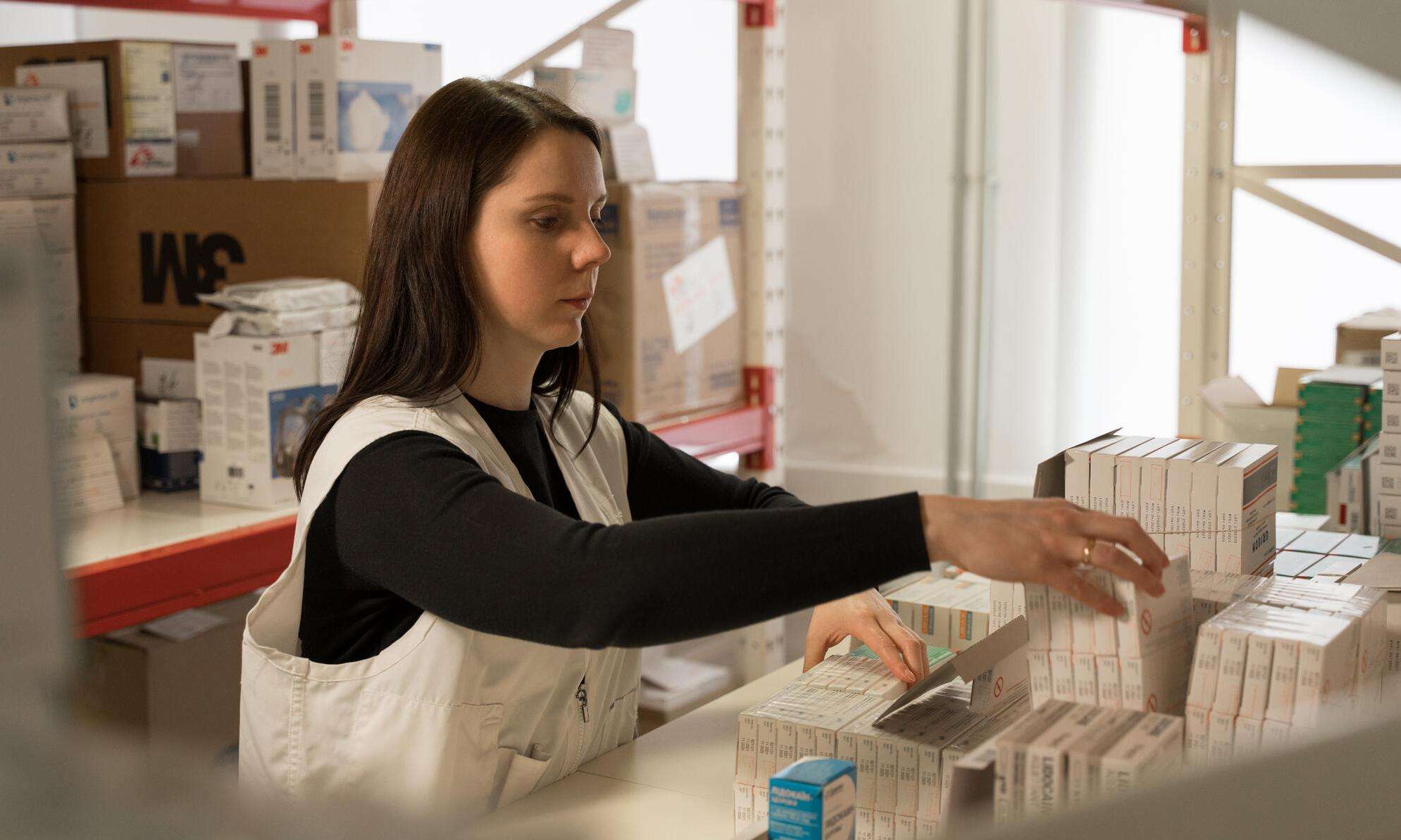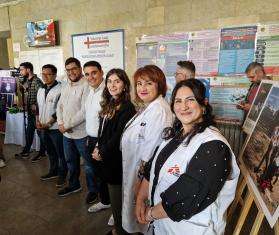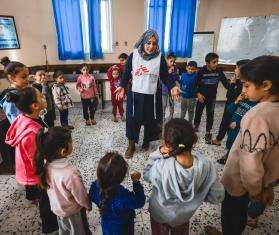In 2014, Ukraine was one of the five countries with the highest burden of drug-resistant tuberculosis (DR-TB) in the world. Today, it is in the top 30.
As the war with Russia further disrupts people’s access to health care, TB is an increasingly difficult disease to treat. It requires a comprehensive approach, with the right drugs, the right support, and uninterrupted access to care.
Worldwide, controlling the spread of TB is a challenge due to obsolete treatments and the lack of an effective vaccine and suitable diagnostic tools. However, gains have been made in recent years: in 2012, the first new TB drugs in half a century were approved for use, and in 2018, a pilot of a shorter course of treatment for DR-TB began in Ukraine.
Doctors Without Borders/Médecins Sans Frontières (MSF) opened the Zhytomyr Regional TB Dispensary pilot project in Ukraine’s Zhytomyr region to gather evidence about the safety and efficacy of a new short-course all-oral regimen, in collaboration with Ukraine’s National TB Institute. The goal of the project was to keep patients motivated, reduce the length of their treatment, and provide social support to overcome barriers that could impact their access to health care.
Five years and 300 patients later, MSF’s project has concluded. Each patient enrolled in MSF’s project had a unique story, and understanding their individual circumstances played a critical role in the success of their treatment.
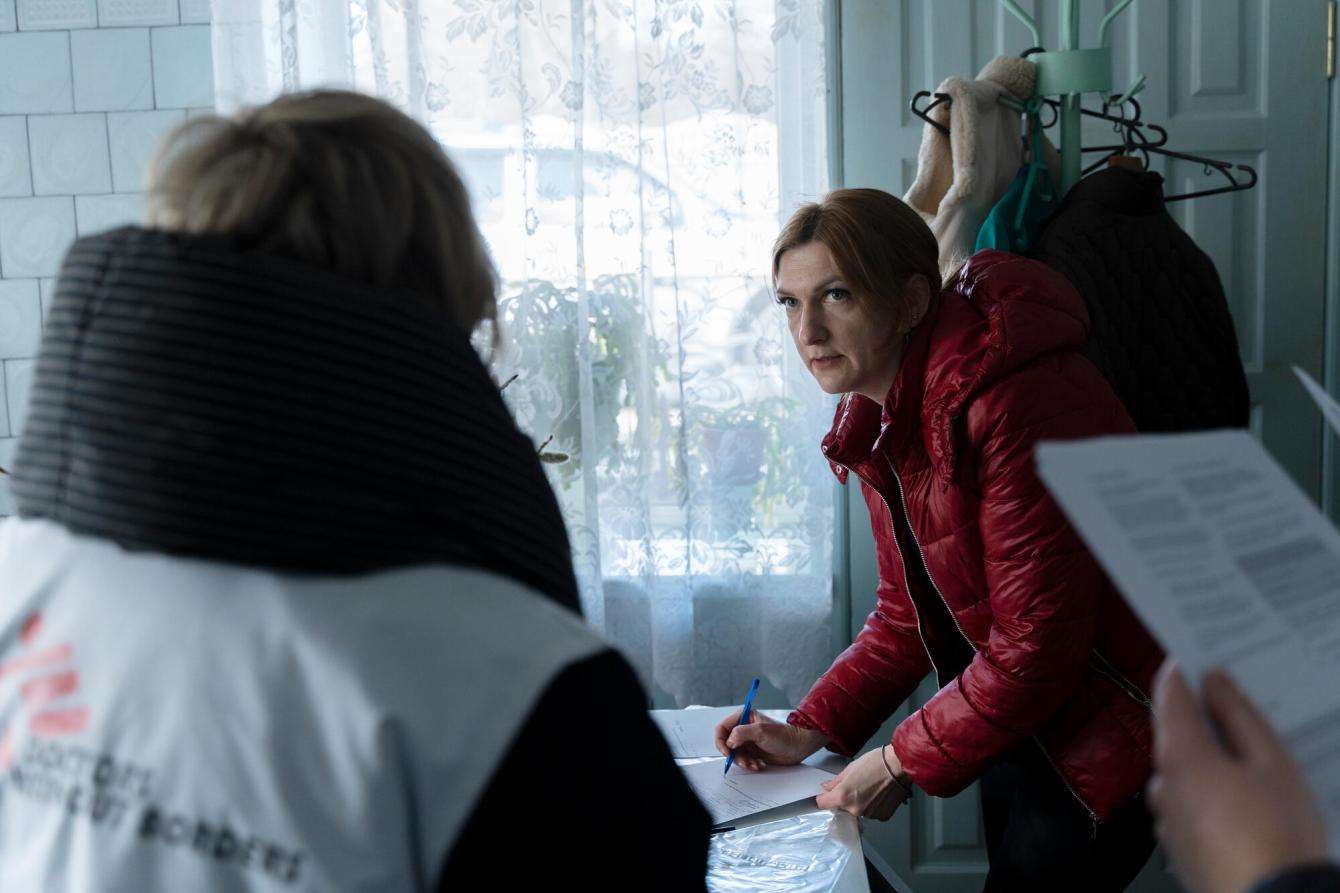
The right medicine can ensure continuity of care
When MSF began working in Zhytomyr, newer oral drugs including bedaquiline and delamanid were not available in Ukraine, and treatment for DR-TB included painful injections rather than oral medication. When the right drugs became available, treatment time was reduced from 18 to 24 months to 9 to 12 months.
"Previously, patients living with DR-TB in Ukraine were often required to stay in the hospital for many months, and sometimes even for years,” said MSF nurse Anna Antipenko. “This long and difficult process discouraged many patients from finishing treatment.”
For patients, the reduced length of treatment made a huge difference in their continuity of care and physical and mental health.
"Before the new medicines became available, I was treated with toxic drugs,” said Natalia, who finished her treatment three years ago. “Those drugs caused my skin to swell and crack and I was covered in wounds. I struggled even to walk.”
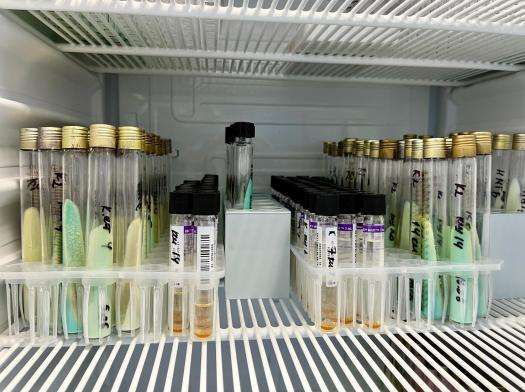
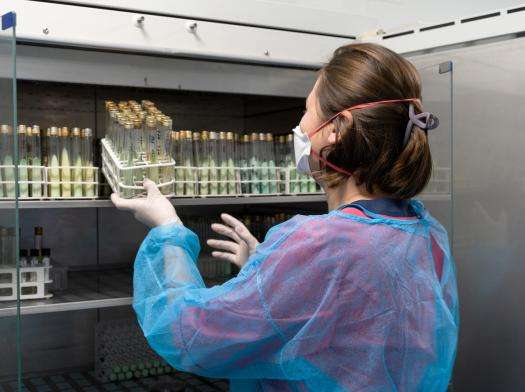
Part of the Zhytomyr project's legacy is a biosafety level-three laboratory that MSF constructed for the research of potentially airborne diseases like TB. Ukraine 2023 © MSF
During her treatment at the Zhytomyr TB dispensary, Natalia met her partner, Serhii. With each other's support, they never missed a day of treatment and were both successfully cured of the disease, with immeasurable benefits to their daily lives and outlooks.
“Now we cherish every moment being able to raise our children,” said Natalia. “I am no longer afraid of anything in this life."
Not only have the drugs delamanid and bedaquiline shortened the length of DR-TB treatment, they have also given patients in stable condition the opportunity to continue their treatment from home. These drugs can be taken without medical supervision, unlike the painful injections patients used to undergo. Being in a comfortable setting can help patients commit to long-term treatment.
Social support is key to successful treatment
“Having to take medication every day is challenging, and for those with co-morbidities, such as hepatitis C or diabetes, treatment can mean taking a dozen drugs a day,” said Antipenko. “Our goal is to keep patients motivated and support them throughout their treatment, from beginning to end."
To increase the chances of a successful treatment plan, MSF social workers visit patients at home to support them in sticking to their medication regimen and to help with any household needs, from providing firewood and food to helping pay utility bills.
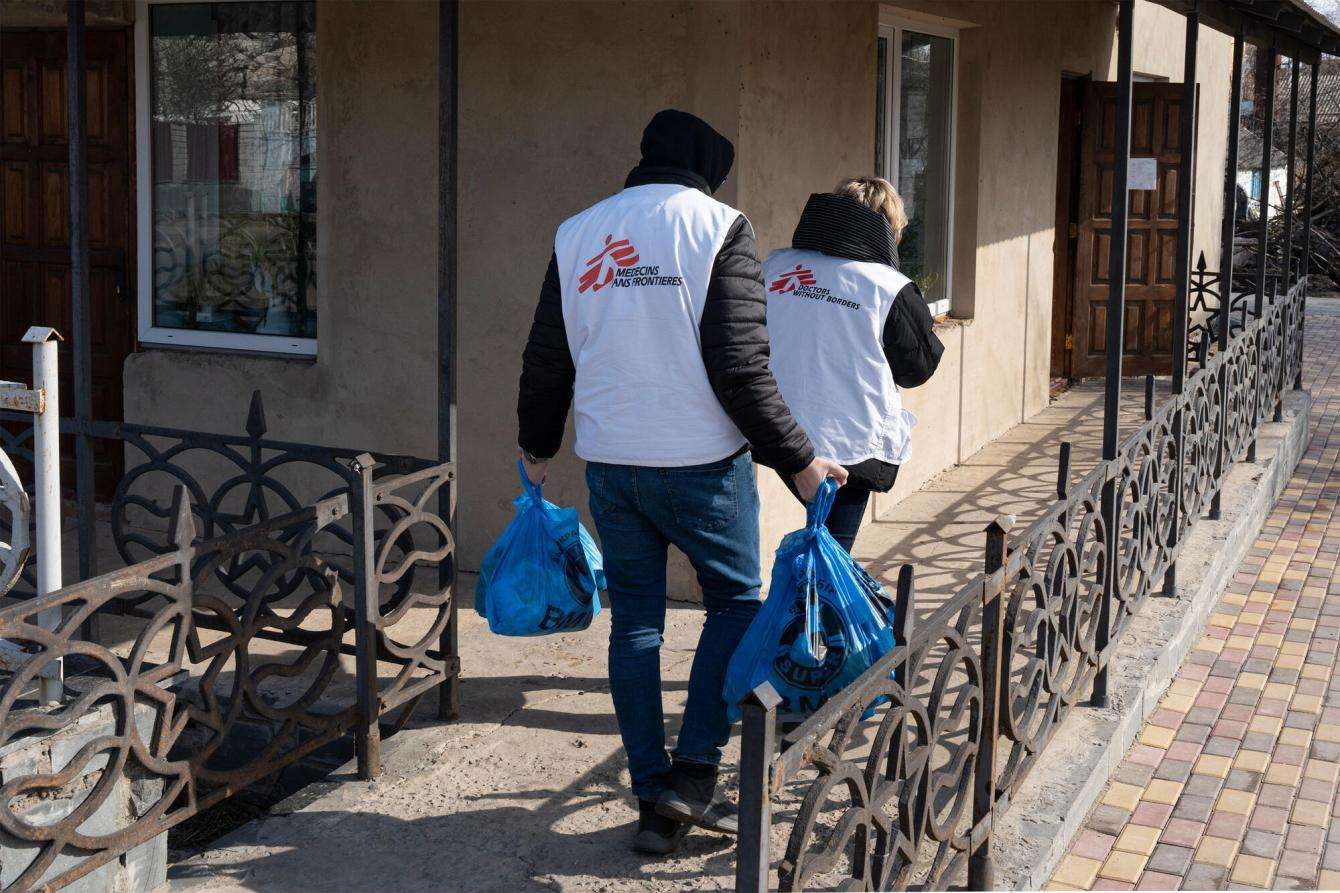
“Supporting the patient with comprehensive care is an essential part of the project, as many patients from Zhytomyr region need help with necessities, such as firewood for the winter, paying utility bills, or receiving food and hygiene kits,” said Antipenko. “By addressing these needs, it's easier for people to focus on their treatment.”
Dismantling TB stigma
Even after recovering from DR-TB, many patients still face stigma associated with the disease, even from health and social workers.
“I have faced stigma and discrimination from my colleagues,” said MSF patient and father of two, Oleksii. “Although I am no longer contagious, it is important that I finish my treatment. Then I can live a normal life with my two boys.”
To help address the stigma experienced by patients, MSF provides training sessions for both medical staff and social workers to share information about the myths and realities of TB and raise awareness of treatment protocols, diagnostic methods, and infection control.
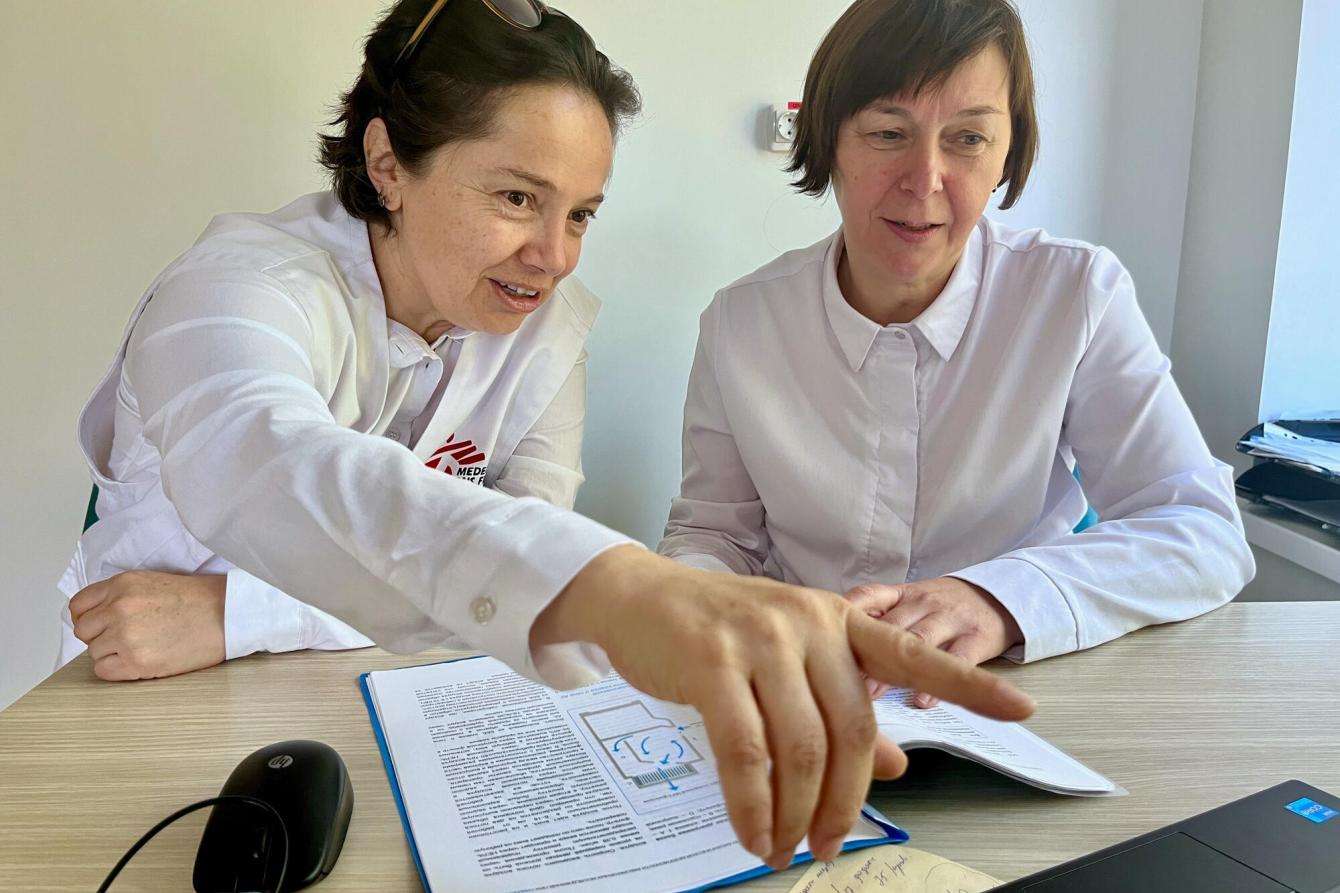
The legacy of the Zhytomyr TB project
MSF ran the pilot project until its conclusion in December 2023, working in partnership with the Regional TB Dispensary of the Ministry of Health, the Public Health Center, and the National TB Institute.
When MSF teams handed over their work to the Ministry of Health, they left a valuable legacy in the Zhytomyr region. This includes a biosafety level-three laboratory, constructed by MSF for the research of potentially airborne diseases such as TB. The laboratory allows providers to carry out sophisticated diagnostic tests and contains a GeneXpert machine capable of testing for drug resistance in less than two hours.
The Zhytomyr project brought together Ukrainian DR-TB specialists as well as international experts including microbiologists and epidemiologists from Germany, India, the Philippines, and Kyrgyzstan. Overall, 38 experts worked on the project, including doctors, nurses, and logisticians. Of the 300 patients they treated, more than three-quarters successfully completed their treatment and recovered from DR-TB.
